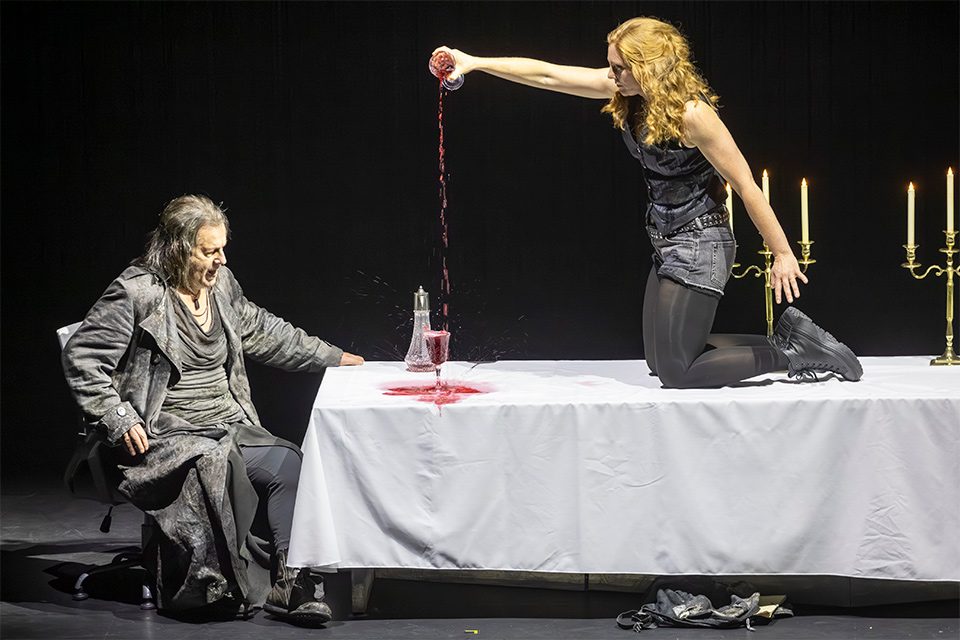Leeds Grand Theatre – until 21 February and on tour until March 2025
Reviewed by Dawn Smallwood
4****
Opera North’s new season is underway with its first performance of Wagner’s The Flying Dutchman at the Leeds Grand Theatre. This is Opera North’s new production, and it originally premiered in 1843 in Dresden, Germany, and first ever performed by Opera North in 1979. The Flying Dutchman is based on an old Dutch legend of a ghost ship with its ghostly crew. The crew are indefinitely condemned to sail the seas, however every seven years they are allowed to land on shore, and in order for The Dutchman (Robert Hayward) to find a faithful wife.
The society ashore are occupied with bureaucracy and, to an extent, ignorance, and it is oblivious to The Dutchman’s fate except for one woman, Senta. Senta (Layla Claire) is knowledgeable about his plight and is empathetic. Both Senta and The Dutchman meet, and their bond strengthens which is consequentially fateful as the plot unravels in the opera.
The plot is parallel to today’s resonances especially the relationships between authority, bureaucracy and displacement and refuge. This is reinforced with voices of individuals, in collaboration with this production, being heard at the beginning of each act who have experienced these situations in their lives.
Joanna Parker’s staging is used effectively as an office and also there are touches of a ship. The canvas hung above the stage projects Parker’s eye-catching video imagery of The Flying Dutchman, one’s circumstance and plight which is constantly being reminded in the opera. Kevin Treacy’s lighting highlights the complex and sombre moods and its ambience throughout.
Directed by Annabel Arden, the cast and creative crew give an excellent retelling and re-imagining of this opera. Excellent performances from Clive Bayley whose portrayal as an authoritative and bureaucratic leading Daland, Edgaras Montvidas as Erik, Hayward as The Flying Dutchman and Claire as Senta (Due to her illness, the role of Senta in this performance, is sung by Mari Wyn Williams from the side of the stage). All of them are supported by the Chorus of Opera North.
The opera, sung in German with English surtitles, gives a lot to think about especially some of today’s themes specifically those of the vulnerable and displaced who are seeking refuge and safety in many communities from natural and man-made challenges and dangers.

